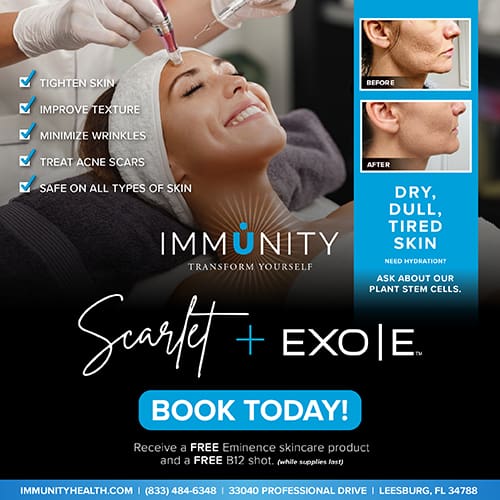By Akers Editorial
Hype or help
Despite what you may be hearing, dietary supplements do work.
Story: Joy Stephenson-Laws
The majority of American adults—approximately 75 percent—take supplements. So, it’s understandable that there are questions about whether supplements are really a good investment in your health and whether they really work.
In fact, some research questions whether popular vitamin and mineral supplements actually provide any health benefits at all. A study conducted by researchers at St. Michael’s Hospital and the University of Toronto suggests that the most common vitamin and mineral supplements “showed no advantage or added risk in the prevention of cardiovascular disease, heart attack, stroke or premature death.”
“Our review found that if you want to use multivitamins, vitamin D, calcium or vitamin C, it does no harm—but there is no apparent advantage, either,” says one of the lead doctors of the study, which was published in May 2018 in the Journal of the American College of Cardiology.
On the other hand, the researchers conceded that supplements of folic acid and B vitamins with folic acid may help reduce cardiovascular disease and stroke. But the overall tone of the research seemed to suggest that commonly used nutritional supplements did not really work.
So, is this true? Do nutritional supplements work or not? In order to understand the issue at hand, it is necessary to first understand exactly what supplements are and are not.
Supplements are not drugs. They may look like pills, but supplements are not drugs. They were never intended to treat or cure disease.
Supplements are supposed to be taken to compensate for any nutrients found in food that you may be lacking. Dietary supplements are products intended to be an add-on or extra, hence the name “supplement,” to your diet. They never were intended to replace food. In fact, it is far better to get your essential nutrients from whole foods such as fruits and vegetables.
As humans, we should get our essential nutrients from food. (We may get some vitamin D from the sun.) These nutrients include water, carbohydrates, fats, proteins, minerals and vitamins. The right balance of these nutrients goes a long way toward keeping us healthy and preventing diseases.
But some people may need extra help to meet their nutritional needs. So, if you eat food, why would you be missing out on critical nutrients?
It may be due to a bad diet. Many Americans are overfed, which explains why more than one-third of U.S. adults are obese. But many Americans also are undernourished. If you eat a lot of nutrient-void processed foods, like white bread, chips, crackers and cookies, you are consuming a lot of calories but very few nutrients. And some people may just not eat enough. They may have just a coffee for breakfast or skip lunch at work because they are stressed or too busy. These types of behaviors can lead to severe nutritional deficiencies.
It may be economic. For example, children in some parts of the world lack access to food diversity, which makes them especially susceptible to vitamin and mineral deficiencies.
It may be the dirt. For a few reasons, the soil quality from which our foods are grown may not be that good. Poor soil quality may cause nutrient loss. On top of this, we also may be “out-farming” the soil. With advances in farming and technology, there is now an ability to yield a greater number of crops. The problem is the nutrient reservoir of most soils is not able to accommodate all of these extra crops.
It may be an absorption issue. The reasons why your body simply may have trouble absorbing nutrients from the foods you eat include older age, having a surgery such as gastric bypass, taking certain medications like oral contraception, gastrointestinal disorders or sensitivity, lifestyle habits like smoking and excessive alcohol consumption, genetics, existing medical conditions and many more.
The truth of the matter is that most of us have at least one nutritional deficiency. Frankly, there is evidence that many of us are simply unable to absorb adequate amounts of nutrients from the foods we eat. And when we are deficient in nutrients, we increase the risk for diseases such as hypertension, diabetes, obesity and many others.
So, is the research true? Do supplements not work?
I have reviewed the research information and concluded it may be misleading. For example, it is not clear to what degree the people who were the subjects of the research were already deficient in any of those nutrients mentioned in the research summary. To the extent that nutrient deficiencies were not clearly dealt with in the research, an intelligent conclusion cannot be made regarding whether supplements work.
We also do not know the quality of the supplements utilized. There are a variety of supplements on the market and effectiveness may vary depending on the incentive of the manufacturer to create scientifically based products. The delivery method of the supplement also may need to be varied depending on the needs of individuals who participated in the study.
Credible evidence, as well as my own experience, shows that proper use of the frequently used supplements identified in the 2018 study may play a critical role in helping you stay healthy. It is important to note, however, that staying healthy is not the same as preventing or treating a specific disease or condition. Sure, you increase your chances of preventing disease when you are healthy. But you may still get sick. You likely will get colds or possibly develop cardiovascular disease or even cancer.
However, you will increase your chances of fighting or recovering from these diseases if you are more nutritionally balanced. The real question is not whether supplements are valuable (they are), but rather when and how you use them as part of your proactive health program to help you be your healthiest.
The proof is in the pudding. Plenty of examples in the health and medical field show how supplementation is beneficial and, in some cases, may be lifesaving. For example, some children’s lives depend on whether they can get a vitamin A supplement.
Other valid uses of supplementation include:
Surgery recovery. Various studies have shown that vitamin C helps with wound healing after surgery. Many of the patients in these studies received vitamin C supplements in order to get doses well above the recommended dietary allowance of this vitamin.
Intravenous (IV) therapy. IV delivery of nutrients (and medication) streams materials directly into the bloodstream and is utilized in the hospital setting for treating patients. Intravenous fluids may contain potassium, glucose and sodium, which are electrolytes your body needs to function normally. Some medical doctors have been successfully using a “cocktail of intravenous vitamin C, vitamin B1 (thiamine) and corticosteroids” to treat sepsis with “no consequential side effects.”
Research also has shown that specific groups of people clearly benefit from supplements and, in fact, supplements are recommended for them. For example:
Vitamin D and calcium to encourage bone mineral density and decrease fracture rates in postmenopausal women.
Synthetic folic acid for women of childbearing age who might become pregnant, to reduce the risk of neural tube defects in newborns.
Vitamin B12 for people over 50, since they may be less able than younger people to absorb the naturally occurring B12 in foods.
Iron supplement for pregnant women as recommended by an obstetrician or a competent health-care provider.
So, we see there are specific situations where vitamin and mineral supplements may be a valuable addition to our healthy routine. And there is also evidence that people who take supplements to meet their nutritional needs benefit from doing this.
“Scientific evidence shows that some dietary supplements are beneficial for overall health and for managing some health conditions. For example, calcium and vitamin D are important for keeping bones strong and reducing bone loss; folic acid decreases the risk of certain birth defects; and omega-3 fatty acids from fish oils might help some people with heart disease,” according to the National Institutes of Health.
But you have to supplement the right way. Remember that not all supplements are created alike or equal. Make sure to ask a competent health-care provider for recommendations about specific supplements and brands. Do not just pick up supplements at your local store. Get doctor-recommended supplements.
Also, be sure to read labels. When the label says, “proprietary blends,” for example, it means you don’t know exactly what is in the product. And don’t assume that just because a store calls itself a “drugstore” or “health food store” that its house brands are reliable. Look for indications that the products are good quality and tested by a reputable third party.
Remember that to supplement is not the same as to replace. You should first try to get all your nutrients, in the right amounts for your body, from good foods. For example, vitamins from food are usually better absorbed by your body. You may also want to consider taking a probiotic after taking certain long-term medications like antibiotics, in order to help ensure your digestive system is healthy and can provide a properly functioning landscape to receive nutrients.
Given all of this, how do you know if you’re getting enough of the vitamins and minerals your body needs?
The best and easiest way is to take a nutrient test. Once you have your results, your health-care provider can tell you what vitamin or other nutrient deficiencies or imbalances (it is possible to have too much of a certain nutrient) you may have and steps you can take to correct them. And keep in mind, some people with difficulty absorbing certain supplements like vitamin C may have to consider the use of liposomal technology or utilize IV therapy.
When used correctly to address a vitamin or mineral imbalance or deficiency, supplements can do wonders to help you be your healthiest.
Enjoy your healthy life!
Sources
ods.od.nih.gov, phlabs.com, cdc.gov
https://www.npr.org/sections/health-shots/2018/05/11/609149556/can-a-cocktail-of-vitamins-and-steroids-cure-a-major-killer-in-hospitals
https://www.crnusa.org/newsroom/dietary-supplement-use-reaches-all-time-high-available-purchase-consumer-survey-reaffirms
https://m.medicalxpress.com/news/2018-05-popular-vitamin-mineral-supplements-health.html?utm_source=nwletter&utm_medium=email&utm_campaign=daily-nwletter
About the writer → Joy Stephenson-Laws is founder of Proactive Health Labs (phlabs.com) and author of “Minerals—The Forgotten Nutrient: Your Secret Weapon for Getting and Staying Healthy.”







































